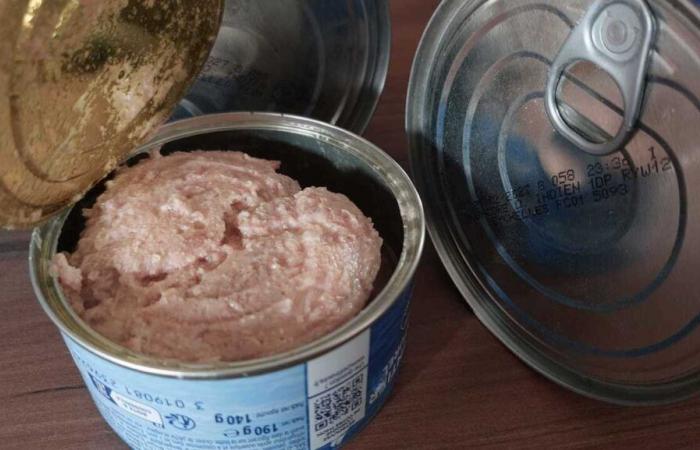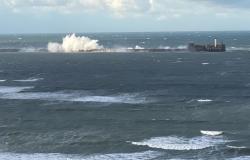
Par
Maxence Gorregues
Published on
Nov. 4 2024 at 6:45 p.m
See my news
Follow Liberté Caen
With pasta, or in a sandwich or to serve in a pie, tuna is a major component of the diet of many people. Thunderclap Tuesday October 29, 2024 when the NGOs Bloom and Foodwatch published the alarming findings of an investigation. Canned tuna would be contaminated with mercury, beyond the recommended regulations.
A study on 148 cans of tuna
The study shows that the 148 cans of tuna analyzed contain mercury, and that 57% of the 148 samples taken in five European countries, including France, exceed mercury thresholds set for classic fish. Should we continue to consume it? Is tuna the only one affected?
Teacher-researcher in toxicology at the University of Caen, François Sicheloffers his insight on the subject, and discusses the risks linked to the consumption of tuna contaminated with mercury, for Liberté Caen.
Why is canned tuna more affected by mercury pollution than fresh tuna?
Tuna canned retains more pollutantslike mercury, because it is dehydrated and is sometimes stored for a long time. In fresh fish, volatile components escape more easily, especially during cooking.
What about other fish sold in cans, such as sardines for example?
All fish are affected by pollutants. But it is logical to find it in greater quantities in large predators, such as tuna. To feed itself, tuna eats many fish smaller than itself, which themselves contain mercury residues.
During its existence, tuna therefore ingests a greater quantity than smaller fish like sardines.
What causes the presence of mercury in their body?
Essentially for decontamination, particularly linked to the electronics industry. Metallic mercury is also widely used in illegal gold panning. It is used to amalgamate gold. It is then released into the environment and is concentrated into methylmercury. In summary,The presence in fish comes from pollution linked to human activity.
People more exposed than others
Can you remind us of the harmful effects of mercury on health?
Mercury is a powerful neurotoxicant, particularly dangerous with repeated consumption. The main risks are neurological paresthesias (tingling), with disturbances in visual and motor functions. The toxic effects of mercury are exacerbated in vulnerable populations, particularly among fetusTHE infants and the young children. Early exposure can lead to cognitive and developmental delays.
What advice do you give to your loved ones when they ask you the question: should you stop eating canned tuna?
ANSES – the National Agency for Food, Environmental and Occupational Health Safety, has published recommendations, citing two portions of fish per week per personone fat and one lean, based on the different contaminants nestled in the fish. It can be applied to the current crisis.
If we consume a can of tuna per week, we can consider that it is a portion of fish, approximately 200g. But it might be prudent to eat a little less.
The message to convey: it should be avoided by pregnant women, children, and breastfeeding women.
As a researcher, what do you hope from the authorities?
This study, which seems serious, even if the sampling is limited, raises the question of the maximum limit for mercury residues specific to tuna, currently set at 1 mg/kg. It is three times higher than that of other fish (0.3 mg/kg). For what ? Especially since tuna is one of the most consumed fish.
Such a high standard for tuna does not sufficiently take toxicological risks into account, especially since, I remind you, mercury accumulates significantly in large predators like tuna. This specificity should be abolished in favor of an MRL (Mercury Residue Limit) determined on the basis of toxicological elements as is usually the rule. Current regulations apply to fresh fish, not canned fish. Gold, it is the fish that ends up on the consumer's plate that must be taken into accountnot the one who is fished.
What do these revelations inspire in you overall?
We are dumping more and more pollutants into our environment. Although it may have been banned since 2020, we find, for example, traces of chlorothalonil, a pesticide, in water. The more chemicals we dump into the environment, the greater the health risk. We are in a complicated situation, with public health on one side, and on the other, economic imperatives. The most obvious case is in the water. This will have to be revised and ask yourself the question: can the regulations that are there to protect us still authorize exemptions?
Follow all the news from your favorite cities and media by subscribing to Mon Actu.





